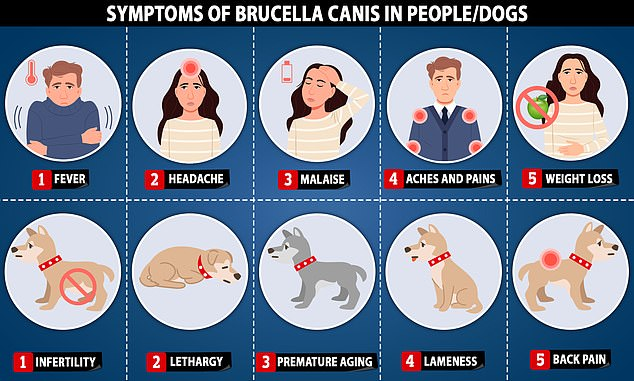Free Courses Sale ends Soon, Get It Now


Free Courses Sale ends Soon, Get It Now



Copyright infringement not intended
Picture Courtesy: www.dailymail.co.uk
Context: Three British citizens have been infected with Brucella canis, a previously unseen and incurable dog disease in the UK. The infection in dogs can cause infertility, mobility issues, and discomfort.
Brucella Canis
About
Transmission
Symptoms in Dogs
Symptoms in Humans
Cure
Summary
Must Read Articles:
BRUCELLOSIS DISEASE: https://www.iasgyan.in/daily-current-affairs/brucellosis-disease
|
PRACTICE QUESTION Q. Consider the following statements: Statement 1: Brucella canis transmission to humans is a common occurrence. Statement 2: Transmission of Brucella canis in humans typically occurs through contact with infected dogs or their secretions. Which one of the following is correct in respect of the above statements? A) Both Statement-1 and Statement-2 are correct and Statement-2 is the correct explanation for Statement-1 B) Both Statement-1 and Statement-2 are correct and Statement-2 is not the correct explanation for Statement-1 C) Statement-1 is correct but Statement-2 is incorrect D) Statement-1 is incorrect but Statement-2 is correct Answer: D Explanation: Statement-1 is incorrect as transmission of Brucella canis to humans is relatively rare, not a common occurrence. Statement-2 is correct as transmission in humans typically occurs through contact with infected dogs or their secretions. |
https://www.ndtv.com/world-news/brucella-canis-incurable-dog-disease-spreads-to-humans-in-uk-4403889
© 2024 iasgyan. All right reserved